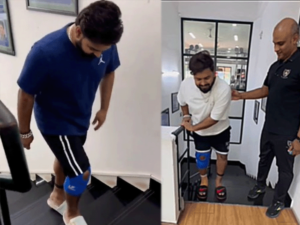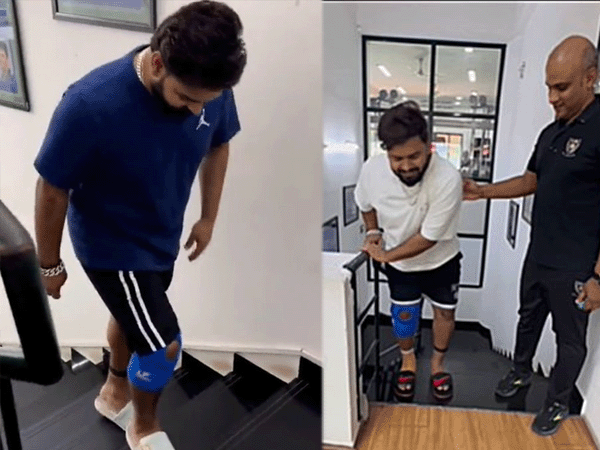
Rishabh Pant’s road to recovery after a harrowing car accident nearly 10 months ago was undoubtedly a grueling journey. Battling multiple injuries to his head, back, and feet, Pant’s determination, and the right diet, played a crucial role in his rehabilitation. As he returns to full fitness, Shweta Shah, his nutritionist, spoke to MoneyControl (https://www.moneycontrol.com/news/trends/lifestyle/this-diet-put-cricketer-rishabh-pant-on-his-feet-after-a-horrific-car-accident-11577711.html) about the dietary plan that helped him get back on his feet.
In the aftermath of the accident, Pant faced a severe loss of appetite and low energy levels, which were further compounded by digestive and gastric issues due to heavy doses of medication. Shah, the founder of Eatfit24/7 and Pant’s nutritionist, identified a possible leaky gut syndrome caused by the medication and painkillers. To address this, she put Pant on a two-week diet of khichdi, a traditional Indian dish known for its digestive and recovery benefits.
Pant was given a carefully prepared khichdi that was made with Kolam rice and yellow mung dal and was free of the masoor and tuvar dals that aggravate the leaky gut. It was spiced with a straightforward tempering of ghee and cumin seeds and enhanced with vegetables, especially bottle gourd and pumpkin. Pant consumed a breakfast smoothie and fresh fruit, khichdi for lunch, jowar puffs for a snack in the evening and khichdi on a regular basis.
He found the diet monotonous at first, but persisted as his energy levels rose and his appetite came back. Furthermore, Pant drank gond katira [tragacanth gum] ka paani, a concoction made from a cooling variety of gond that has anti-inflammatory and bone-healing properties. Shah made a special herbal blend with herbs like cumin, curry leaves, and punarnava to help preserve gut health. In order to get a better night’s sleep, he also drank bay leaf water.
After two weeks of khichdi, Shah gradually reintroduced a variety of rotis and parathas made from amaranth and buckwheat flour, while wheat remained off-limits. Milk products were retained, and paneer became Pant’s primary source of protein during his vegetarian phase, which lasted for a month. Garam masala and red chili powder were strictly avoided, while anti-inflammatory juices such as pineapple and basil leaf juice, celery, ginger, mint, and parsley juice, and amla, carrot, and beet juice were added to his diet.
Pant resumed eating non-vegetarian foods and splurged on hot snacks like chicken tikka, paneer tikka, sweet potato chaat, sprouts, and corn chaat as he made significant progress in his rehabilitation. He currently practices strength, flexibility, running, and a diet that promotes weight loss. His breakfast now consists of besan chillas, eggs with toast, or oats, and his mid-morning snacks are nuts and seeds. Rotis, a lot of vegetables, steamed drumsticks, and steamed carrots make up the typical lunch menu. Pant prefers Indian food to continental or Thai fare, and he ends his day with rice and chicken curry or steamed chicken paratha.
As Pant works diligently towards his return to the Indian cricket team for the 2024 England series, his recovery back to fitness stands as a testament to the power of a well-planned diet, ayurvedic principles and unwavering determination. Pant, the quintessential ‘desi boy’, continues to draw strength from his roots and the comforting flavours of home-cooked meals, setting an inspiring example for aspiring athletes everywhere.




